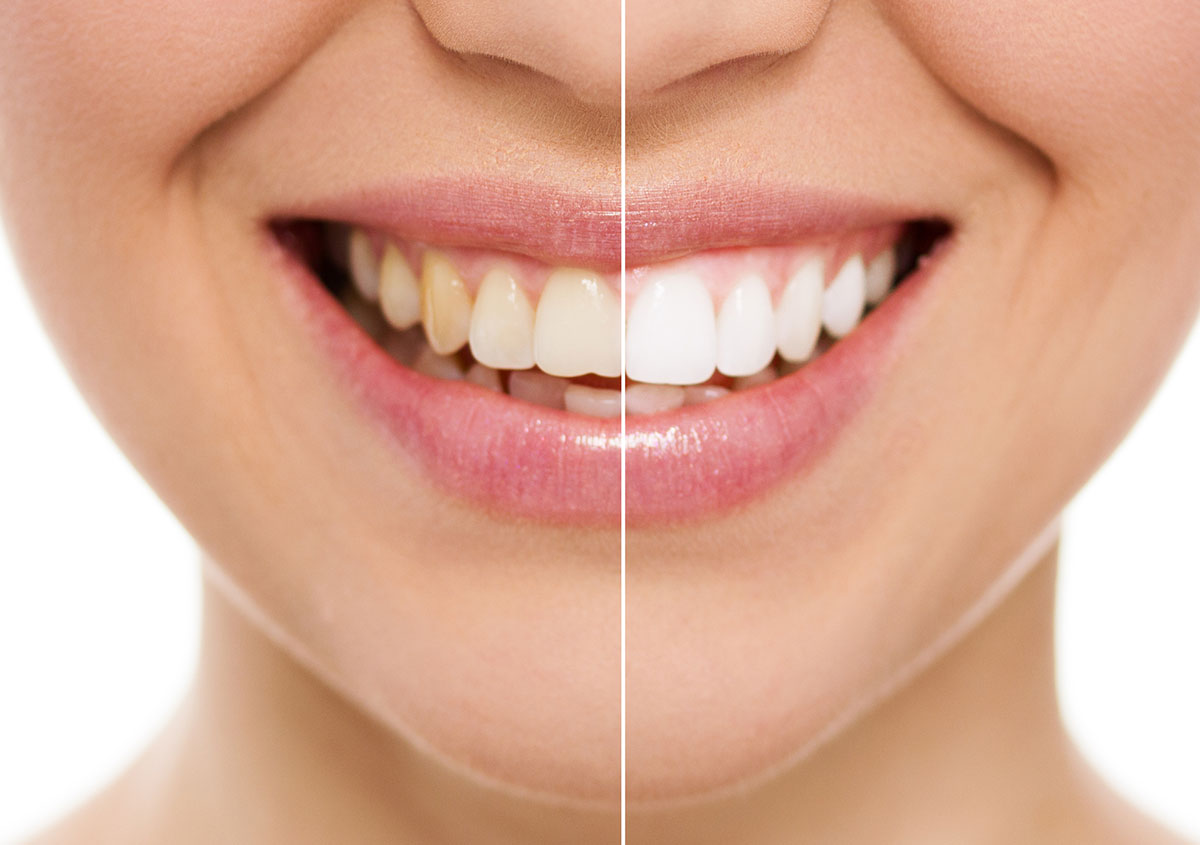Designing Your Smile With a Cosmetic Makeover
Designing a smile is part science and part artistry, combining the two to meet a patient’s expectations and deliver stunning cosmetic makeover results.

Cosmetic dentistry has made great advances in recent years. Patients are able to have chipped, missing, discolored or poorly aligned teeth corrected and finally have the beautiful, brilliant smile they have always wanted.
What Can a Cosmetic Smile Makeover Correct?
When done by a skilled cosmetic dentist, a makeover can make a huge difference in the appearance and health of your smile. It can even help patients feel and look years younger. The most common cosmetic procedures restore chipped, cracked, missing or discolored teeth and can also improve the bite and jaw alignment.
Here is a more comprehensive look at the types of issues that a smile makeover can correct:
Damaged, Uneven or Missing Teeth
Cosmetic dental solutions such as implants, bridges and veneers can correct cracked, chipped, uneven, disproportionate or missing teeth.
Brightness & Color
Teeth can be discolored or stained for a number of reasons, such as aging, smoking, caffeine and diet. A smile makeover can make teeth whiter and eliminate the appearance of discoloration.
Alignment & Spacing
Today, there is a whole range of cosmetic dentistry procedures available to correct misaligned teeth and gaps.
Gums
What some call a gummy smile, with a disproportionate amount of gingival display, irregular gum contours and more serious gum issues can be remedied with a smile makeover.
What Are the Factors in Designing the Perfect Smile?
You might be wondering what exactly makes a smile more beautiful than others. It seems entirely subjective. But there are actually a few very precise criteria that are used to measure a smile’s aesthetic quality. When a patient is considering a makeover, these same factors are used to design the perfect smile.
Symmetry
Symmetry is a key factor for aesthetic beauty when it comes to nearly everything in nature. Our smiles are no exception. If you imagine a vertical line drawn down the middle of the face, perpendicular to the alignment of the eyes, this is the facial midline. Smile design starts from the midline, which should fall directly between the two front upper teeth (central incisors).
For cosmetic procedures, a dentist can use special software to visualize the patient’s facial structure and find the midline from the center of the eyebrows to the middle of the upper lip. From the midline, he can then determine the best positioning for crowns, veneers and implants.
Shape
The other important axis for smile design is known as the smile line. The curved line made by the top of the lower lip gives a smile it’s signature shape. Cosmetic dental procedures aim to align the edges of the upper teeth with the smile line. For example, the smile line helps determine the optimal length of veneers in order to create the perfect curved effect.
Tooth Characterization
The shape of the individual teeth also has an aesthetic impact on a smile. Teeth the are smaller, smoother and rounder are considered more feminine, while larger, square-shaped teeth are more masculine.
Proportion
As the most prominent feature of the smile, the proportion of the two central front teeth is the most significant. Longer teeth are associated with a younger-looking smile because teeth tend to wear down with age. The ideal width to length ratio for a pleasing smile is 75% to 80%. The proportion of other teeth is determined by the size of these two. A successful smile makeover ensures that teeth are proportionate and balanced to create a healthy, youthful look.
Color
The color of teeth is much more complex than it seems. When designing a smile, finding the perfect color must take into consideration the patient’s age, hair, skin and eye color, as well as the shade of the patient’s other teeth. Teeth whitening remains one of the most commonly requested cosmetic dental procedures, yet, in reality, dentists have multiple ways to help you get a brighter smile.
Occlusion
Smile design must also consider the functionality of the teeth. The upper and lower teeth should come into contact when you close your mouth. This is important for chewing, alignment of the jaw and the overall look of a smile.
What is the Process for a Smile Makeover?
Before embarking on a smile makeover, your dentist will want to evaluate the overall condition of your teeth and gums. If you haven’t had regular cleanings, you will need to schedule a hygiene appointment. Any oral health problems will need to be resolved before beginning cosmetic dental procedures.
First, your dentist should consult with you to discuss your expectations, the cosmetic procedures available and recommendations for a great outcome. Together, you and your dentist will determine the best plan of action for your smile makeover.
Then, your dentist may be able to provide you with an idea of what your smile will look like using imaging software. Next, it’s likely that your dentist will take X-rays, photographs and make molds of your teeth as preparation for your smile makeover.
Designing a smile is highly individualized and each process is unique. A smile makeover may include a combination of the following cosmetic dental procedures:
- Whitening
- Porcelain veneers
- Composite bonding or resins
- Gum shaping or re-contouring
- Ceramic crowns
- Partial dentures
- Dental implants
The Briglia Dental Group Can Design a Brilliant Smile for You
The dentist’s experience and expertise is a key component in successful cosmetic procedure. Dr. Briglia’s specialized training, experience and artistic skills enable him to provide a wide range of new and proven cosmetic dental solutions.
If you are considering a cosmetic smile makeover, or have any questions, call our office and speak to a member of the Briglia Dental team (610) 615 0160.
Share this Article
Back to Blog Page





